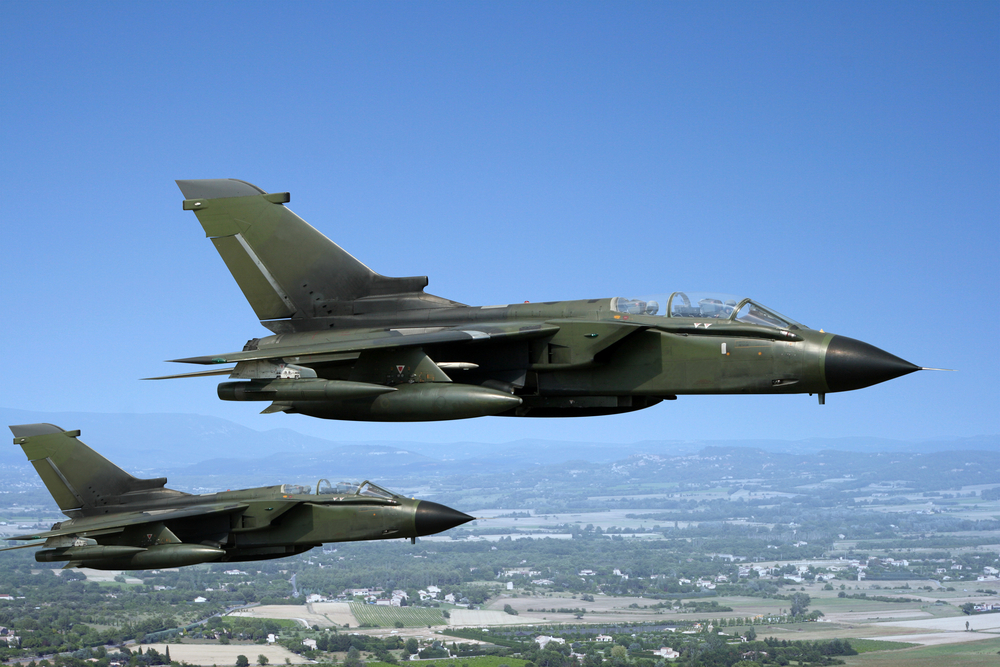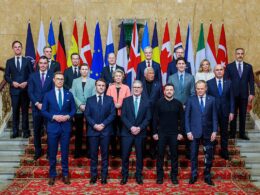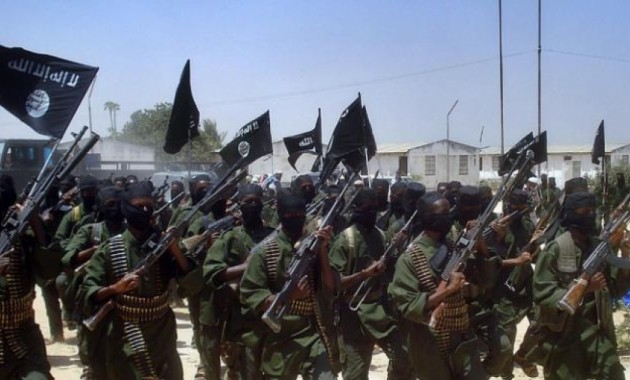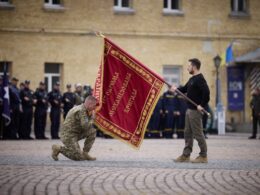The blame for the war, atrocities, and destruction in Ukraine lie solely with Russia. Only Russia can be blamed for its unjust, unprovoked, and utterly meaningless war and its global consequences. Russian guilt, however, does not mean that NATO is without fault.
NATO bears responsibility for not having prevented a war it could – and should - have stopped. A war that has led to enormous suffering and destruction, European recession, increased global poverty and hunger, radicalization and increased extremism, and reduced Euro-Atlantic security and stability.
The war could have been avoided if NATO had acted in line with its stated ambitions and essential core tasks. Unfortunately, the disconnect between its words and deeds has ramifications far beyond Europa as the Alliance has suffered a loss of credibility.
Loss of credibility and failure of deterrence
In 1999, the NATO members agreed to the following ambition:
“NATO's essential and enduring purpose, set out in the Washington Treaty, is to safeguard the freedom and security of all its members by political and military means. Based on common values of democracy, human rights, and the rule of law, the Alliance has striven since its inception to secure a just and lasting peaceful order in Europe. It will continue to do so. The achievement of this aim can be put at risk by crisis and conflict affecting the security of the Euro-Atlantic area. The Alliance therefore not only ensures the defence of its members but contributes to peace and stability in this region.”
In 2010, NATO defined Crisis management as one of its three essential core tasks, alongside Collective defense and Cooperative security. The alliance agreed to:
“…help manage developing crises that have the potential to affect Alliance security, before they escalate into conflicts; to stop ongoing conflicts where they affect Alliance security.”
The best of intentions, however, came to nothing because of the lack of political will and consequential erosion of military capabilities.
Deterrence is not decided in either Washington or Brussels: whether deterrence works or not is decided in Moscow. It is a conclusion drawn based on continued demonstrated will and ability, and on NATO’s responses to Russia’s many provocations and transgressions.
In Russian eyes, the West has long appeared as weak, divided, cynical, and unprincipled.
Except for the former members of the Warsaw Pact, the West, for its part, has never understood Russia. The “Old NATO” has chosen to ignore the experience of those who know Russia the best. The West has acted as if Russia shared our values and interests. However, Russia never did and probably never will.
It considers negotiations a sign of weakness and has integrated military power as part of its aggressive foreign policy. Where Europe has been in deep peace since the 90s, Russia has been in a constant "conflict" since the early 2000s. It acts accordingly and, therefore, understands only the language of strength.
If one considers its repeated violations of international law as a test of Western will and ability to defend international law and our shared values and principles, we have failed. We have never responded in a manner that stopped the next and often more serious "test." Unlike Russia, NATO and its member states have chosen to never use the full scope of available means in response to its transgressions.
Its violations of international law until 24 February include:
- its attack on Georgia in 2008 and Ukraine in 2014;
- war crimes in Syria;
- attempted coup in Montenegro;
- the downing of MH-17;
- closure of the Kerch Strait;
- blockade of Ukrainian ports in the Sea of Azov and the attack on its navy;
- restrictions on international freedom of navigation;
- terrorist attacks;
- and not least, its hybrid war against both Ukraine as well as the NATO and EU member states.
The latter includes repeated interference in elections and referendums, energy war, information war, cyber-attacks, liquidations, political manipulation, and more.
Some will rightly argue that the West has done something. It has repeatedly condemned the Russian abuses and occasionally adopted sanctions.
There have, however, been few links between words and deeds. The EU and the NATO member states did not escalate the sanctions when Russia refused to comply with international law. The member states did not strengthen their defense budgets; did not start rebuilding their command and defense structure; did not close existing critical vulnerabilities in defense and society; did not fill the empty stockpiles or increase their requirements for “Days of Supplies” available. NATO did not act on the Russian hybrid war against its member states and failed to exercise military diplomacy.
The West has mainly just been very "concerned." They have been the “Nations of Concern.” Words, but little action.
The NATO member states' response to a war on the European continent in 2014 defines the Alliance and its ability to act urgently on emerging security challenges. The member states decided – or rather aimed to - increase the defense budget's share of gross domestic product to 2% within 10 years. They were unable to fully commit to a NATO target they were supposed to have achieved already eight years earlier
even at a time of crisis. In 2022, only 10 out of 30 countries managed to achieve the target.
“In 2006, NATO Defence Ministers agreed to commit a minimum of 2% of their Gross Domestic Product (GDP) to defence spending to continue to ensure the Alliance’s military readiness. This guideline also serves as an indicator of a country’s political will to contribute to NATO’s common defence efforts since the defence capacity of each member has an impact on the overall perception of the Alliance’s credibility as a politico-military organisation.”
Despite the ambitions laid down in its strategic concept, and its commitment to secure a just and lasting peaceful order in Europe, NATO chose to exclude the use of military force to resolve the war in 2014 already and thus, giving Russia full freedom of action. The member states collectively failed to support Ukraine's efforts to rebuild a credible deterrence until the full-scale invasion was inevitable. Ukraine was denied weapon supplies for eight years to “avoid an escalation of the war.”
The true nature of the (hybrid) war was never acknowledged and the international community remained focused on the low-intensity conflict in Donbas. Not the illegal occupation of the Crimean Peninsula, the closure of the Kerch Strait, the blockade of the Ukrainian ports in the Sea of Azov, the attack on the Ukrainian Navy, the occupation of Ukrainian gas rigs, or the Ukrainian maritime exclusive economic zone.
The Minsk agreements were accepted as a "peace agreement" even though it was signed under duress and could never have led to peace. On behalf of Europe, Germany and France tried to convince Ukraine to abide by an agreement that would have led to a loss of its sovereignty.
Their actions demonstrated that NATO was not going to act in line with its strategic concept. Consequently, they undermined NATO's credibility and deterrence. As previously argued, whether deterrence works or not is decided in Moscow. It is a conclusion drawn based on continued demonstrated will and ability, and on NATO’s responses to its many provocations and transgressions.
The Alliance and its member states failed.
Collective defense and Crisis management were two of NATO's essential core tasks. When the alliance chose not to fulfill one of its essential core tasks, questions arise as to its ability and willingness to solve the other.
Why Humanitarian intervention?
While NATO has committed to do less after Madrid Summit and walked away from the very strong commitment to Crisis Management – further eroding the credibility of the Alliance in the face of Russian aggression – the rationale behind the original commitment remains unchanged. A just and lasting peaceful order in Europe and the security of the Alliance are very much at risk because of a war on its border.
"Much is at stake here. Not just for Ukraine – but all of Europe and the world at large. And we will be tested. Tested by those who want to exploit any kind of divisions between us. This is not only a war unleashed by Russia against Ukraine. This is a war on our energy, a war on our economy, a war on our values and a war on our future. This is about autocracy against democracy," said Ursula von der Leyen, President of the European Commission, 14 September 2022
"This is not only a war unleashed by Russia agnst Ukraine. This is also a war on our energy, economy, values & future...and with the necessary courage, Putin will fail and Ukraine & Europe will prevail," @vonderleyen said in her State of the Union speech https://t.co/iVa1vBFT72 pic.twitter.com/MQ1iMySo1u
— Euromaidan Press (@EuromaidanPress) September 14, 2022
When I argue for humanitarian intervention in Ukraine and the need for NATO to close the sky and break the Russian maritime blockade in the Black Sea, it is based on a logic introduced by the NATO members themselves.
Humanitarian intervention in Ukraine is in the national interests of all 30 member states.
Firstly, it is a question of integrity. It is about protecting international law and acting following the UN "Responsibility to Protect" doctrine. It is about defending our shared values and principles, and about denying countries the right to change borders by force. It's about doing what's right. If the world’s biggest military alliance, founded on the basis of common values of democracy, human rights, and the rule of law, will not defend the basis for our security and stability, who will?
Secondly, humanitarian intervention in Ukraine is in line with NATO's strategic concepts from 2010. The Alliance and its member states have already acknowledged that their security challenges start beyond their area of responsibility. This is a war that we must resolve alongside Ukraine. NATO cannot be seen to be deterred by Russia.
Thirdly
, a potential Russian victory would undermine European security and stability. It will not only embolden and strengthen Russia's further confrontation with the West but also create lasting instability along our borders. It will not least create an example for other authoritarian states watching the confrontation unfold.
Fourthly, I have long stressed that the "tsunami of ripple effects" of the war will have major global consequences. This includes increased costs of living, food and energy insecurity, increased famine, recession, and more. This increases the likelihood of social unrest, increased extremism, riots, and the fall of governments. The political landscape in the USA and Europe will - as in the 1930s – most likely be changed by political forces seeking to exploit the voters' frustration.
Fifthly, a NATO presence in Ukraine alone will have the same effect as its presence along Europe's eastern flank. It will be a "trip wire" that reduces Russian freedom of action. Any Russian air- or missile strikes against Ukraine would run the risk of striking NATO forces deployed in the country. Russia would run the risk of triggering a broader military confrontation. It is hard to imagine Russia running the risk of engaging thirty countries as it is being pushed back by one.
The sixth is about taking Russia seriously and acting upon its threats. NATO underestimated Russia while letting its military deterrence erode until 2022. Russia, however, defined NATO as a threat already in 2014 and considers the alliance an active part in the war. It claims that the West is waging an information war, economic war, war of proxy, and total war against Russia. The sanctions are seen as an act of aggression. Having waged a hybrid war against the West itself for years, it delivered an ultimatum
to both the US and the Alliance in December 2021. To continue to refer to the war as just a war between Russia and Ukraine undermines our own credibility. It is already a broader confrontation between Russia and NATO. Even the EU has acknowledged the threat.
Last but not least, I have pointed out that Western humanitarian intervention in Ukraine is also inevitable. The West is running out of weapons it can supply Ukraine which it can use with no or limited training. The options left for us are either to see Ukraine fail or to provide it with both the weapons and the personnel needed to operate them efficiently. The former is, fortunately, no option.
The reality is that the West is fast reaching a long-predicted milestone. In the same manner, as logistics forced Russia to adjust its initial operational objectives for the invasion, logistics are about to force the Alliance to change its strategy.
Risk of escalation from a humanitarian intervention in Ukraine?
Does a humanitarian intervention in Ukraine run the risk of escalation? Probably, but not in the manner as many claims. Escalation is the gradual process of becoming greater or more serious. It is not an on/off switch. Black or white. Either peace or war. It is a gradual process.
An escalation does not equate to war. On the contrary, to seize the initiative and influence the further course of the war, an escalation is crucially important. It is the very prerequisite for being able to de-escalate.
NATO must demonstrate political will and military ability to thereby convince the aggressor that peace is a better solution than war.
Conclusion
It is crucial to learn from past mistakes to be able to meet future security challenges. By highlighting flaws in past decisions, this paper hopes to encourage a change in strategy as the war is in its ninth year. This is increasingly important as Russia is once again experiencing defeat on the battlefield and is running out of options to change the military balance in its favour.
The use of tactical nuclear weapons – as horrific and as unlikely as it is – is still one of its alternatives. In the absence of a clear strategy and a red line from both the USA and NATO, a “trip wire” in Ukraine is, therefore, increasingly important. Nuclear deterrence must be established to ensure the security of all.
The Alliance must convince Russia that it is prepared to defend international law, democracy, our common values, and principles, and, not least, European security and stability.
We need to convey a message Russia truly understands: We are willing to fight for what we believe in. Only then will Russia consider peace.
More words will not help. Tangible actions are needed to convince Russia we mean business.
As of today, we have little or no influence on how the war will develop. NATO today allows Russia and Ukraine to decide on European security and stability alone. We allow Russia to undermine NATO's credibility, undermine Europe and impose tremendous costs on the international community.
European security is today only linked to Ukrainian courage, professionalism, and resilience. This is both unreasonable, unacceptable, reprehensible and highly irresponsible.
It is time for NATO to act as the world’s biggest military alliance and as the defender of the common values of democracy, human rights, and the rule of law.
NATO needs to intervene to restore its credibility and re-establish deterrence because this is in the national interest of 31 nations.
Related:
- The West is running out of weapons it can supply Ukraine. NATO or a coalition of the willing needs to intervene
- What NATO should do
- NATO’s new Strategic Concept gives short shrift to Eastern Neighborhood and Ukraine
- Ukrainians love Duda and Johnson, want to join EU and NATO – opinion poll
- “I don’t see Putin using nuclear weapons” – military strategist Lawrence Freedman
- Russia must not get another “Minsk agreement” in Ukraine
- NATO, you are already part of the conflict. Enforce a no-fly zone in Ukraine, now





